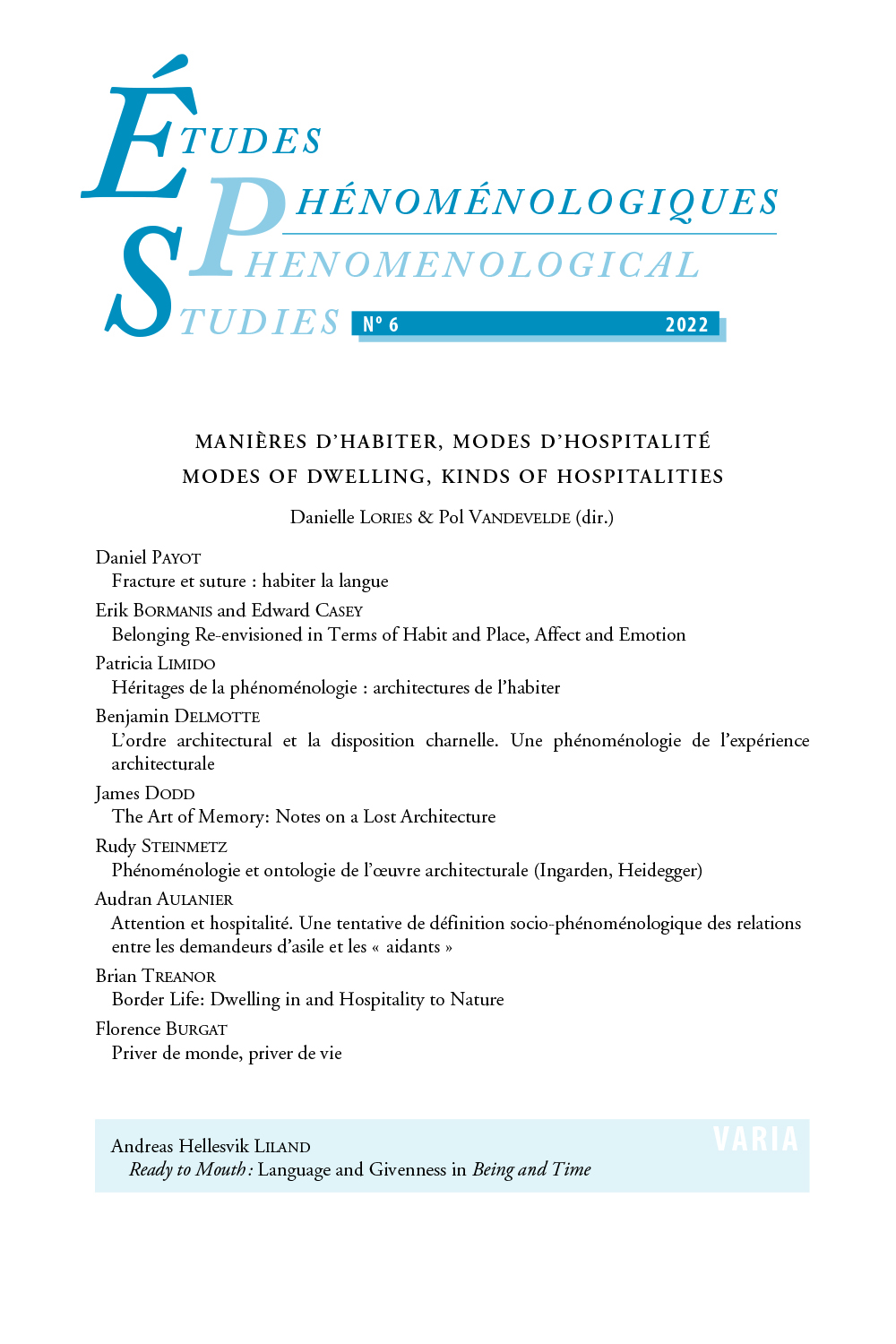 previous article in this issue previous article in this issue | next article in this issue  |

Preview first page |
Document Details : Title: L'éthique animale est un humanisme Subtitle: À propos du différend entre Levinas et Derrida sur l'humanité et l'animalité Author(s): SHANG, Jing Journal: Etudes phénoménologiques - Phenomenological Studies Volume: 7 Date: 2023 Pages: 203-223 DOI: 10.2143/EPH.7.0.3291061 Abstract : While the scholarship on Levinas – most prominently Derrida – widely agrees that the humanist inclination presented in Levinas’ ethics is incompatible with an animal ethics, my objective is to question this apparent incompatibility and to argue that animal ethics is a humanism different from traditional humanism. This is because the humanity which Levinas defends is not a biological or metaphysical notion but is rather strictly ethical: it is by substituting oneself for the suffering Other – including animals – that one becomes human. My argument has three stages. First, I will briefly analyze phenomenology’s tendency toward a kind of 'dehumanization', and its culmination in Derrida, who thematically defends animality against humanity. I will then 'reconstruct' Derrida’s deconstructionist critiques of Levinas. Second, I will present Levinas’s critique of anti-humanism and his defense of humanism, and thereby deconstruct Derrida’s deconstruction by developing a conception of humanity which is based on an asymmetrical responsibility and substitution for the Other. Finally, I will show that the decentering of the traditional human subject and the emphasis on unconditional responsibility for the Other prescribed in transitive sensibility are essential and common themes for both Levinas and Derrida. |
|


